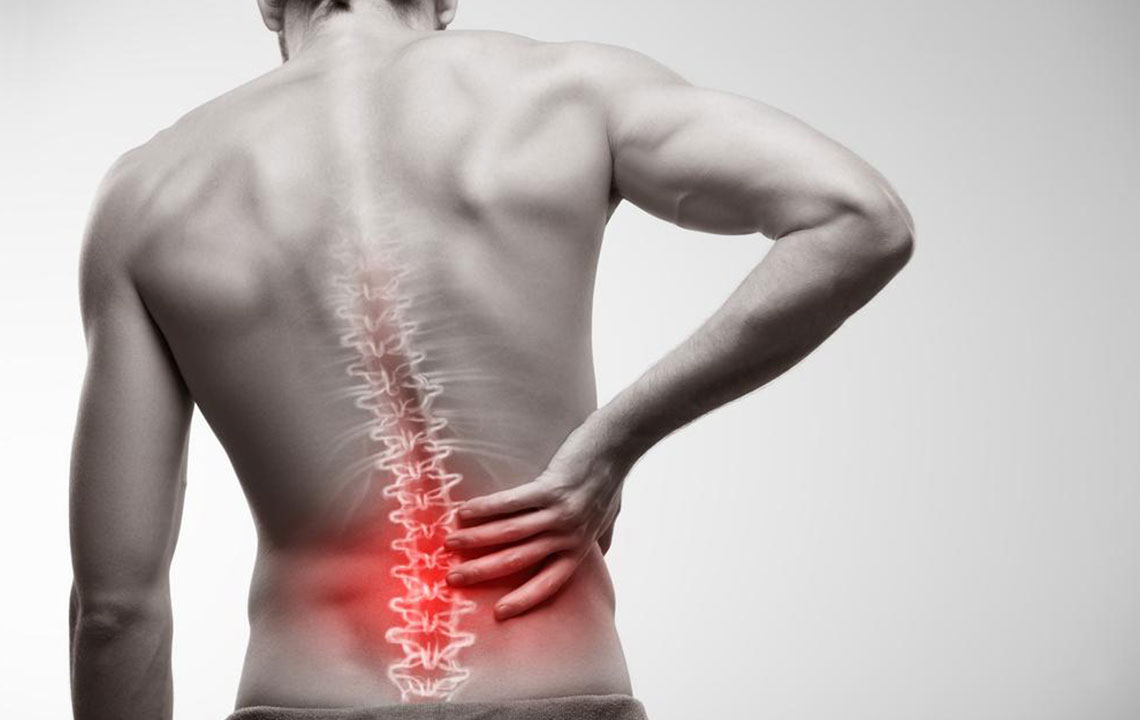Comprehensive Approaches to Managing Degenerative Spinal Conditions for Better Quality of Life
Explore comprehensive strategies for managing degenerative spinal conditions, including medical treatments, lifestyle modifications, and surgical options. Learn how early intervention and tailored therapies can alleviate pain, improve mobility, and enhance quality of life. Manage symptoms effectively and prevent further deterioration with expert guidance and supportive care.

Comprehensive Approaches to Managing Degenerative Spinal Conditions for Better Quality of Life
As individuals age, degenerative changes in the spine become increasingly common, presenting a major challenge to maintaining mobility and overall well-being. Degenerative disc disease and joint degeneration are among the most prevalent spinal issues affecting millions worldwide. These conditions develop gradually over time due to wear and tear, reducing the spine's ability to function optimally. Understanding the nature of these degenerative processes and exploring effective management strategies are essential for improving patient outcomes and quality of life.
Degenerative disc disease occurs when the intervertebral discs, which act as shock absorbers between vertebrae, begin to degenerate. This results in decreased cushioning, increased stiffness, and discomfort. Similarly, degenerative joint disease primarily affects the facet joints, leading to cartilage deterioration, inflammation, and restricted movement. These changes are often compounded by factors such as genetics, lifestyle, and occupational stress, making prevention difficult but management feasible through various treatments.
While aging remains the primary risk factor, early intervention and tailored treatment plans can significantly alleviate symptoms and slow progression. The fundamental aim is to reduce pain, enhance mobility, and prevent further degeneration of the spine. Effective management often involves a multidisciplinary approach combining self-care strategies, medical treatments, and sometimes surgical interventions.
Key Treatment Modalities for Degenerative Spinal Conditions
Management approaches for degenerative disc and joint diseases encompass a broad spectrum of therapies designed to address symptoms, improve functionality, and maintain independence. Below are some of the most commonly recommended strategies:
Medications: Pharmacological treatment remains a cornerstone of managing spinal degeneration. Non-steroidal anti-inflammatory drugs (NSAIDs) such as aspirin and ibuprofen effectively reduce inflammation and relieve pain. When muscle spasms are prominent, muscle relaxants may be prescribed to ease discomfort and improve mobility. In certain cases, pain relievers like acetaminophen or stronger medications like opioids might be considered under strict supervision to manage severe pain episodes.
Physical Therapy and Rehabilitation: Engaging in customized physical therapy can yield long-term benefits. Therapists design specific exercises aimed at strengthening the core, improving flexibility, and supporting spinal stability. These targeted exercises help alleviate pressure on affected discs and joints, preventing further deterioration and improving posture.
Specialized Exercises and Low-Impact Activities: Incorporating low-impact workouts like swimming, walking, or cycling can help maintain joint health without adding undue stress. Regular movement improves circulation and nutrient flow to the spinal tissues, promoting healing and reducing stiffness.
Surgical Interventions: When conservative treatments fail to provide relief, surgical options may be necessary. Procedures like discectomy, where damaged disc material is removed, or disc replacement with artificial implants can restore spinal function. Spinal fusion might be considered in cases with severe instability. These surgeries aim to reduce nerve compression, stabilize the spine, and alleviate chronic pain.
Complementary and Supportive Therapies: Additional therapies such as heat and cold applications can reduce inflammation and muscle tension. Posture correction techniques, ergonomic adjustments at work, and wearing appropriate footwear can prevent further strain on the spine. Mind-body approaches like acupuncture or chiropractic care might provide supplementary relief.
Importance of Lifestyle Modifications and Preventive Measures
While aging is unavoidable, adopting a healthy lifestyle can significantly impact the progression and severity of degenerative spinal conditions. Regular exercise, maintaining a healthy weight, avoiding tobacco use, and practicing good posture are vital preventive strategies. Nutritional support through a balanced diet rich in anti-inflammatory foods may also play a role in preserving spinal health.
Education on body mechanics and proper lifting techniques can help reduce strain during daily activities. Ergonomic adjustments in the workplace and home environment further support spinal integrity. Patients are encouraged to remain proactive in their care, seeking timely medical advice when symptoms first appear.
You Can Lead a Better Life with Effective Management
Degenerative disc and joint diseases of the spine can be debilitating, but with appropriate management, individuals can maintain a good quality of life. A combination of medical treatments, lifestyle changes, and supportive therapies offers a comprehensive approach to controlling symptoms and slowing disease progression. Early diagnosis and adherence to treatment plans are key to achieving the best outcomes.
It is essential for patients to work closely with healthcare professionals to develop personalized management strategies tailored to their specific needs. With ongoing care and lifestyle adjustments, many living with degenerative spinal conditions report significant improvements in pain levels, mobility, and daily functioning.
In conclusion, understanding degenerative spinal conditions and implementing effective management strategies can help individuals navigate their symptoms and preserve their independence. Innovations in medical technology and a greater emphasis on holistic care continue to improve the outlook for those affected by these common age-related conditions.





